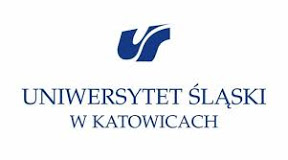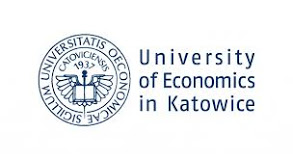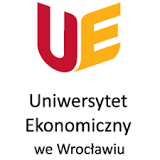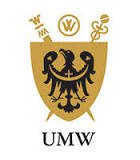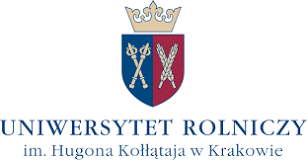Poland
Popular job sectors in Poland

There's a shortage of skilled trade workers in Poland - and IT, sales, hospitality and healthcare are among the sectors welcoming graduates who have the right talents
These are the professions in which overseas workers have the greatest chances of finding employment, according to the ManpowerGroup Survey 2016.
So with 45% of employers struggling to fill skilled roles in certain industries, discover what you'll need to know if you're serious about working in Poland…
Jobs in Poland
While Poland has the largest economy in central Europe, its recent growth has suffered from a slowdown and the costly welfare system hasn't helped. However, unemployment is falling and it's now dropped below the European Union (EU) average.
There are plenty of jobs available for foreigners who are considering Poland as a work destination - in fact, it has become one of the largest BPO/SSCs (business process outsourcing/shared services centres) in Europe.
Although the majority of the country's workforce is in the services sector, other main industries include chemicals, coal mining, food processing, iron and steel, glass, machine building, shipbuilding and textiles.
Graduate-level positions are available for people with highly sought-after language or IT skills in areas such as telecommunications, computer science and logistics. You may also find opportunities in banking and finance, education, management and tourism.
There are several multinationals based in Poland as well as major local companies, including:
- Agora SA
- Asseco Group
- FCA Group
- GSK (GlaxoSmithKline) Poland
- LOT Polish Airlines
- Nordea Group
- Orange Polska
- PKN Orlen
- PKO Bank Polski
- Poznan Volkswagen
- RBS Poland
- T-Mobile Polska
- Toyota Motor Poland.
For a helpful guide to the Polish labour market and multinational companies based in Poland, see the Careers In Poland Guidebook.
To learn about the business services sector in particular, read the Business Services Sector In Poland 2016 report, by the Association of Business Service Leaders (ABSL).
In addition to large businesses with a presence in Poland, the country is home to some successful start-ups - for example, LiveChat, Brand24, Estimote and Brainly.
How to get a job in Poland
Most workers apply for jobs from their home country, typically through a jobs portal, or find work through a multinational company with offices in Poland.
You can search the listings on the following job sites:
- Careerjet.pl
- Careers In Poland
- Infopraca.pl
- Interia
- Jobs.pl
- Jobs In Krakow
- Jobs In Warsaw
- Kariera w Finansach
- MonsterPolska
- Praca.pl
- Pracuj.pl
- Reed
As well as private recruitment agencies, those arriving from EU member states or the European Economic Area (EEA) can make use of the services provided by Polish district labour offices for help on getting a job.
In addition, numerous Polish newspapers contain comprehensive job vacancy sections, including:
The European Job Mobility Portal (EURES) is another place for jobseekers to find work in Poland.
Similar to the UK, if you wish to work for a particular organisation, you could send them a speculative application directly using a CV and cover letter. However, the majority of employers expect applications to be written in the Polish language, unless it's stated that English is acceptable.
Should you be invited for an interview, if you're from a non-EU country it's important to check whether you'll first need a visa from your local Polish embassy before booking your travel.
Summer jobs
During the busy summer season, you'll be able to find casual work in hotels, restaurants and bars - as well as at large companies. Check the job sites above for vacancies with the latter, apply speculatively or, if you're already in the country, enquire in person.
An alternative way of improving your employability in the eyes of prospective Polish employers is to spend some time volunteering.
The European Voluntary Service (EVS) is a programme funded by the European Commission, which gives 17-30-year-olds the opportunity to volunteer for between two weeks and 12 months in a number of countries, including Poland. This is a great way to gain experience and learn a new language.
Unpaid and full-time placements may involve a range of activities, with projects available in social care, environmental protection, cultural activities and youth work. Travel, accommodation, food and insurance are covered by a European grant for successful applicants, while you may also be eligible to receive 'pocket money'.
Teaching jobs
Teaching English as a foreign language is one of the most accessible jobs for native English speakers living in Poland. You'll need a good Bachelors degree and the right teaching qualifications to be considered for these programmes, which typically last for one year. For more information on teaching English in Poland, see TEFL.org.uk.
Internships
By securing an internship, you could give your CV a boost while gaining valuable work experience. It may also provide you with an advantage when applying for graduate jobs.
With a number of global businesses having a presence in Poland, you can take a look at their individual websites, or try the speculative approach and contact companies directly to enquire about training opportunities.
To search for current internship vacancies with Polish companies, visit Graduateland or Praktyki.edu.pl.

AIESEC
The Global Talent Programme provides 3 to 12-moth graduate internships in teaching and business in various Polish cities.
Polish visas
If you're a citizen of the European Union (EU), you can move to Poland and begin your hunt for work immediately, without the need for a work permit. However, as you'll likely be working for more than three months, you'll need to obtain a temporary residence permit, which lasts for up to three years. This can be arranged at your nearest Voivodeship Office.
EU nationals may also be entitled to have certain types of health and social security coverage transferred to the country in which they go to seek work. For country-specific information, see the European Commission.
For the most up-to-date visa information relating to UK nationals, see the Embassy of the Republic of Poland in London website.
In order to qualify for a work permit, non-EU workers will usually need an official employment offer from a Polish company, among other stipulations.
This visa information is still valid following the UK's decision to leave the European Union and will be updated if changes happen.
Language requirements
As Polish is spoken by the vast majority of the population, proficiency is likely to be a pre-requisite for many jobs. However, English is spoken among some academic, business and professional communities, as well as the younger generation.
Polish language courses are held across the UK, while many good websites exist to help you learn a language or improve your skills. Pick up a few basic words and phrases at BBC Languages - Polish and Study In Poland.
How to explain your qualifications to employers
Poland is a member of the Bologna process and part of the European Higher Education Area (EHEA), so you should find that your UK qualifications are comparable to their Polish equivalent, and will therefore be fully recognised by employers. For further details on comparisons with Polish qualifications, see World Wide College.
However, if it's necessary to get your qualifications evaluated - for example, to work in a regulated profession in Poland - you can search the list of professions with specific requirements.
What it's like to work in Poland
Polish workers are generally as satisfied with their working conditions and quality of life as the European average, although flexibility in working hours is below this benchmark. Annual leave typically stands at 20 days per year. While regular office hours are typically 8am-4pm, working past 5pm is sometimes expected.
The authoritarian corporate culture is beginning to give way to a more open dialogue between managers and their staff. While Poles are usually very open, friendly and tolerant, smart business dress is the norm and meetings can be formal, direct and professional.
In the office, be prepared to address people by their professional title and family name rather than their first name - and avoid shaking hands in a doorway, as locals might consider this to bring bad luck.
Not understanding the Polish language can be a barrier to communication, especially with the older generation, so aim to learn it before you arrive.
According to Numbeo.com, the cost of living in Poland is nearly 50% lower than in the UK, although wages are typically lower too.
Back









